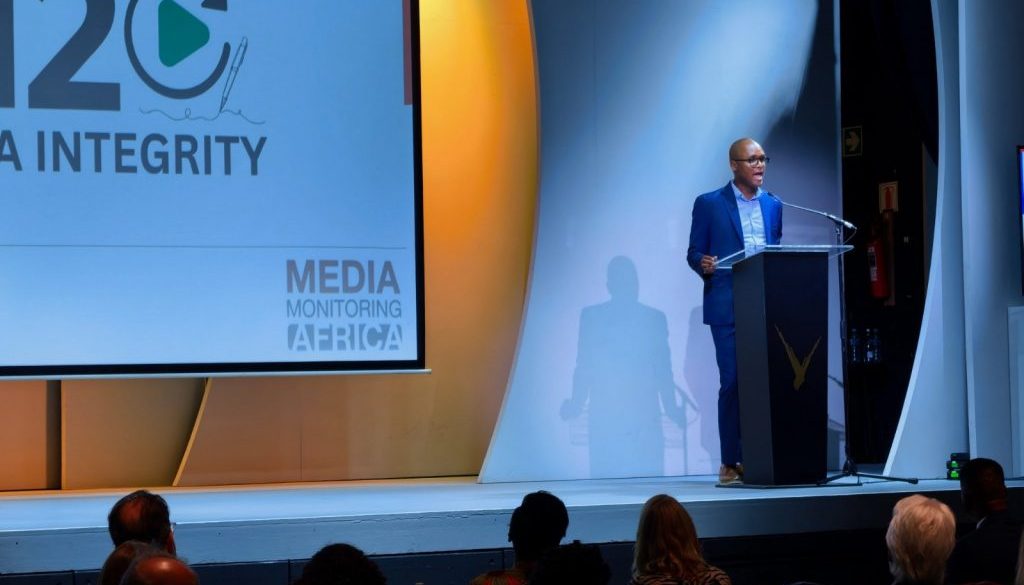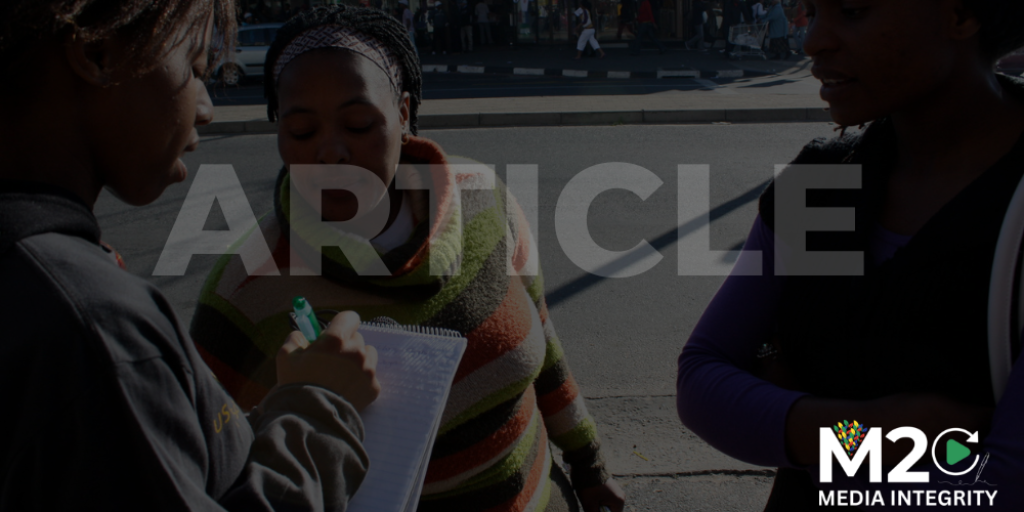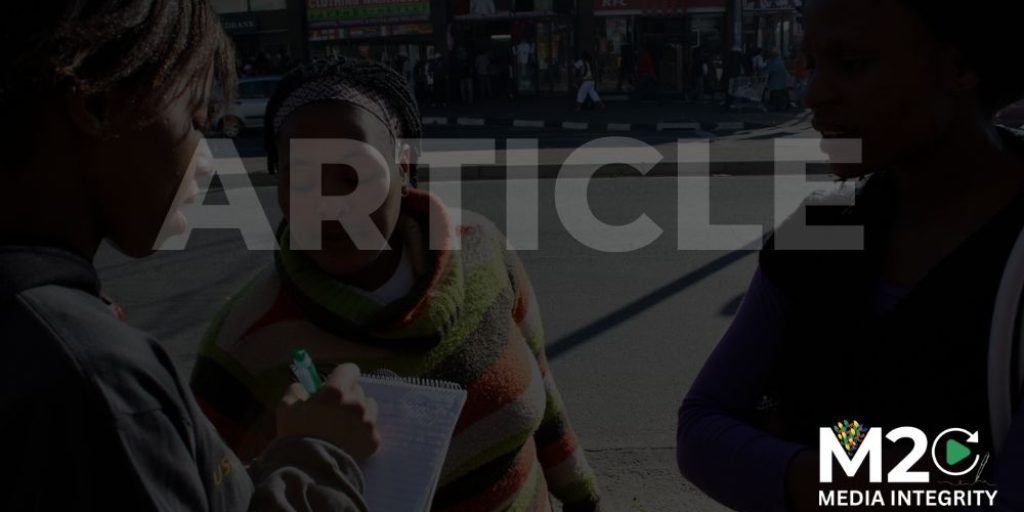Minister Solly Malatsi: Information integrity is not a local issue, it demands global cooperation.
Chair, colleagues, editors, reporters, creators and partners — thank you.
In 1976, a single photograph in South Africa changed the course of history. A news image of 12-year-old Hector Pieterson, fatally wounded during the Soweto uprising, was splashed across front pages around the globe.
Suddenly the world could no longer ignore the horrors of apartheid. International opinion hardened almost overnight against the regime, galvanizing sanctions and emboldening our own freedom movement.
That moment from our past stands as powerful testimony. Truthful information, courageously reported and widely shared, can topple injustices and uphold human dignity.
It shows that news and information are not mere commodities or optional extras. They are a public good in the truest sense, essential to society’s progress.
Today, as we gather at the M20, the lesson endures. Information integrity matters profoundly for all of us. It is the invisible infrastructure of democracy, the lifeblood of informed economies, and the glue of social cohesion. We ignore this at our peril.
Information integrity is the cornerstone of democratic society. Democracy itself rests on truth. Citizens can only make sound decisions and hold leaders accountable when they are informed by facts, not falsehoods.
Free and fair elections, in particular, depend on an electorate able to independently form opinions free from manipulation.
When disinformation pollutes the public sphere, it undermines voters ability to choose based on accurate information, posing a direct threat to the legitimacy of the democratic process.
We have already witnessed this across the world and South Africa is not immune. During the 2024 election campaign, generative AI was misused to produce deepfake videos, including a fabricated clip of then US President Joe Biden, threatening sanctions on our country if a certain party won.
Such incidents remind us that the speed and scale of digital falsehoods can mislead.
And yet, there is cause for confidence. Robust institutions and vigilant media can protect democracy against the virus of disinformation.
A recent study of South Africa’s 2024 election found that despite fears, AI-driven fake content had only limited impact, with most information still coming from traditional sources. Strong media structures helped blunt the worst effects.
But we cannot be complacent. As UN Secretary-General António Guterres warns, “threats to information integrity are proliferating and expanding with unprecedented speed on digital platforms, supercharged by AI technologies”.
This places science, facts, public health and human rights under attack. If lies spread faster than truth, if hate speech and rumor outrun verified news, the results can be catastrophic for democracies, for social harmony and even for development.
The economy also relies on truth. Markets function on trust and transparency; fraudulent information can disrupt financial systems and erode investor confidence.
Free, independent journalism is essential for the economy to function transparently, supporting anti-corruption efforts, fair markets and informed policymaking.
No major challenge – from healthcare to climate change – can be solved without fact-based, independent information at its core. Truth in information is a public good that underpins all other public goods.
If information integrity is the foundation of democracy and development, then independent, media are its foremost guardians. A free press, broadcasting a range of voices and perspectives, is not a luxury – it is a necessity.
We must emphasize, here at the G20’s “M20” forum, that media freedom and diversity are essential safeguards of truth, not optional extras for society. South Africa’s own journey underscores this fact.
From the brave reporters who exposed apartheid’s atrocities decades ago, to today’s investigative journalists rooting out corruption, we know that when the media can operate freely and professionally, accountability and progress follow.
Yet around the world, the very media institutions we rely on to uphold truth are under severe strain. In too many countries, journalists face censorship, harassment or violence. But even where overt repression is absent, news media are struggling to survive.
A crisis of media viability is unfolding globally. According to the 2025 World Press Freedom Index, media outlets in 160 out of 180 countries report achieving financial stability only “with difficulty” or “not at all”. The economic model that sustained independent news is collapsing in many places, especially at local levels.
This is a massive problem. When media outlets cannot sustain themselves, society loses its watchdogs. Vacuums emerge, giving space for the inflow of rumours, propaganda and unchecked falsehoods. A free and viable media sector is as important to democratic society as clean water is to public health.
So we must work together as governments and the private sector to support sustainable models for independent media. This could include innovative funding mechanisms, fair competition policies and ensuring that dominant tech platforms do not unfairly siphon away advertising revenues that journalism depends on.
Even as we defend the traditional pillars of journalism, we face new 21st-century challenges to information integrity. The digital revolution has profoundly democratized information creation and distribution, with benefits and risks on a global scale.
On the one hand, more voices than ever can be heard. On the other, false content and harmful narratives can spread like wildfire across borders and platforms.
The business models of social media and search platforms have often rewarded virality over veracity. In practice, this means sensationalism and misinformation can get boosted, while credible journalism struggles to reach audiences.
We must urge greater platform accountability. More transparency about how information is curated. Stronger action against demonstrably false or hateful content. We need to elevate factual information rather than suppress it.
Another urgent challenge is the rise of AI-generated content. We are entering an era when a single individual with a laptop can manufacture realistic fake videos, images or audio at the click of a button.
Deepfakes can be deployed by malicious actors to mislead citizens or manipulate narratives at unprecedented scale and speed.
The challenge for all of us in the G20 is to harness the benefits of AI while staunchly guarding against its misuse in the information sphere. We need responsible AI governance and ethical AI guidelines that ensure these technologies are not weaponized to undermine truth.
Information integrity is not a local issue. It is global and it demands global cooperation. And so under South Africa’s G20 Presidency in 2025, we carry forward this vital agenda.
South Africa’s message to the G20 is one of partnership and resolve. We will not table new commitments lightly and rather seek to implement and amplify the consensus already in place.
We will work closely with the United Nations and other international bodies, reinforcing initiatives like the UN Code of Conduct for Information Integrity on digital platforms and UNESCO’s programs on media freedom and digital literacy.
Above all, we will listen to and involve the independent media voices themselves. We’re taking a multi-stakeholder approach. Governments can’t solve these problems alone. But with enlightened policies, we can enable solutions.
In doing so, we tread carefully to protect freedom of expression. Information integrity cannot be an excuse for censorship; it must be about empowerment.
Empowering citizens to receive accurate information and diverse views, empowering journalists to do their work safely and empowering technology to elevate truth over falsehood.
Colleagues, today we reaffirm that independent media is the beating heart of our societies. Let us treat information as the public good it is, investing in it, protecting it and making sure it benefits everyone.
And let us commit that in this digital century, we will not allow the tools of progress to become weapons against truth. Instead, we will harness innovation, cooperation and our shared values to ensure that news and information serve humanity.
In doing so, we uphold the very foundations of democracy and development for generations to come.
Thank you.



